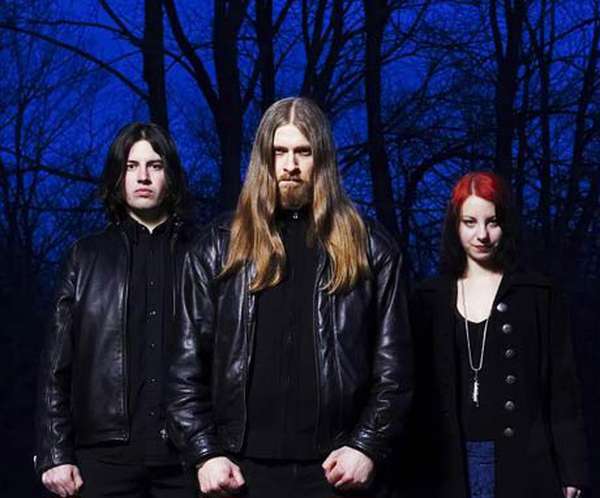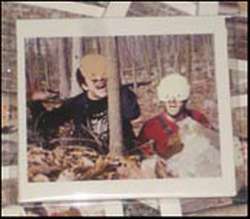It may seem a bit unproductive to review an album that came out in the early stages of this year, but that's part of what makes Woods the band they are: silently create an album that is noteworthy, but flies below any conventional form of radar. Just as their debut How to Survive In + In the Woods was filled with lo-fi, unconventional folk music, At Rear House does the same, adding more experimentation and new versions of old songs.
Woods is Jeremy and Christian from Meneguar, and the defining aspect of At Rear House is minimalism. The album itself is briefly named At Rear House, where it was recorded, and everything else about the album and layout is done as simply as possible. There is no lyric sheet, a small amount of art, and only the vital information necessary for the album. This is more or less Woods in a nutshell, creating something out of nothing, making something tangible and identifiable with barely any supplies.
At Rear House opens up with "Don't Pass on Me" and shows Woods doing what they do best: drawing the listener in, not scaring them away but rather leaving more to be desired. The lyrical structure revolves around the opposite of the golden rule, don't do onto on me and I won't do onto you, with a distorted guitar not far in the background. "Hunover," follows, and Jeremy's simple and soft voice is on display, fuzzy distortion still existing but overshadowed but the clarity of the vocals.
As the album continues, a shorter and more upbeat version of "Keep it on" is played, and then a crossroads is reached with "Woods Children Pt. 2." This is where the listener must decide whether to go on or not, as the sound of a cat is replaced with the playing of a tribal drum and the sound clips of children. This is where Woods' second personality appears, where they are at their most experimental and unconventional. The same can be seen a few songs later in "Walk the Dogs," as the deep almost incomprehensible and certainly psychotic voice of a man asks, "If you won't walk the dog with me, who's gonna walk the dog." The song is reminiscent of "God Hates the Faithless" on Woods' previous album, a mix of the startling, of paranoia and of dementia.
Woods does return back to their quasi-conventional style of songwriting, putting out their best effort to date with, "Bone Trapper." Jeremy's voice is at it's clearest and it's most calming, with only an acoustic guitar to serve as his guide until the song reaches the darkness of droning of indistinguishable sounds. However, it's only for a moment, as Jeremy and the strumming of the guitar return, completely unscathed.
While Woods is as minimal as they can be, they are still able to create more than should be capable of, maybe even more than they intended. It's not easy, at times it may not even be enjoyable, but it does stand on it's own two feet, evolved from the smallest of means.


